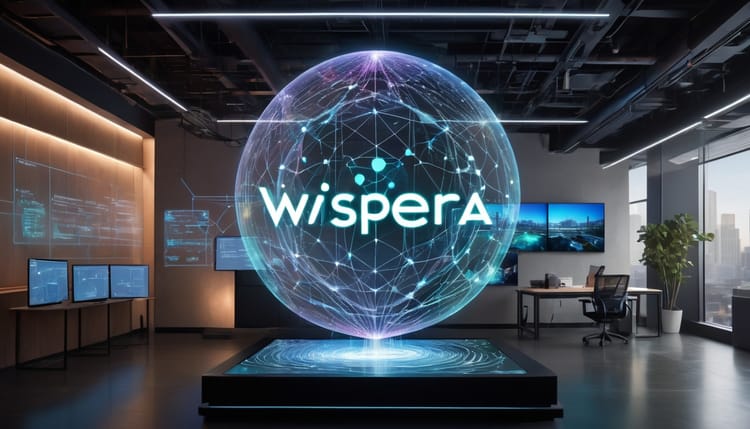Navigating Compliance: How AI Workers Are Transforming Information Security, Law, and Finance

Introduction
Building on our recent article about the potential of AI workers, we look at examples of the evolution from conventional methods to AI-driven processes in regulated fields such as Information Security, Law, and Finance. These areas, critical for maintaining organizational compliance and navigating complex regulatory landscapes, are experiencing profound changes due to the integration of AI capabilities.
The purpose of discussing these transformations is twofold. Firstly, it aims to show how AI workers are not merely support tools but are becoming integral components that enhance accuracy, efficiency, and responsiveness in compliance-related tasks. This change is driving a redefinition of job roles and task management within firms, shifting the landscape towards a more technology-integrated approach. Secondly, this discussion seeks to provide professionals and business leaders with insights into leveraging AI technology to stay ahead in an increasingly regulated world where compliance is mandatory and central to operational success.
AI's transformative potential shines in fields burdened with vast data and stringent regulatory requirements. Its ability to manage, analyze, and report information swiftly and accurately presents a new era of possibilities. For instance, in Information Security, AI systems enhance threat detection and response speed; in Law, they streamline case analysis and documentation; and in Finance, they enable precise control over complex fiscal computations and regulatory adherence. This discussion will delve into these impacts, showcasing AI's vital role in reshaping these pivotal sectors and inspiring optimism about the future.
The Rise of AI in Compliance
Integrating artificial intelligence (AI) into business operations is reshaping the core of many industries. This broad adoption of AI technologies reflects their ability to transform complex systems into more efficient, responsive, and manageable entities. Particularly in compliance and policy-centric fields, AI's role is becoming increasingly indispensable as businesses seek to navigate the intricate and often shifting regulatory environments they operate within.
AI technologies automate routine tasks, optimize data analysis, and ensure compliance with various legal and regulatory frameworks. From financial services to healthcare and beyond, organizations leverage AI to proactively address compliance issues, reduce human errors, and manage risks more effectively. This trend is driven by the ever-increasing volume and complexity of data businesses must process, coupled with stricter regulatory requirements across global markets.
The importance of compliance and policy in today's business environment cannot be overstated. Regulatory compliance is no longer just about adhering to laws; it is a pivotal aspect of operational integrity, brand reputation, and customer trust. Non-compliance can result in severe penalties, legal challenges, and damage to an organization’s standing. Herein lies the value of AI. By automating compliance processes and maintaining meticulous records, AI systems provide organizations with a critical tool to meet regulatory demands consistently and effectively.
Moreover, in a regulatory landscape that can change swiftly, AI's agility in updating and adapting to new rules helps companies stay ahead of potential compliance breaches. This capacity is precious in international contexts, where differing regulations across jurisdictions require a dynamic approach to compliance management.
Exploring the rise of AI in compliance reveals that its integration is a strategic response to the deepening complexities of modern business operations. AI offers operational efficiencies and acts as a safeguard, fortifying organizations' ability to fulfill compliance obligations while fostering innovation and competitive advantage. This discussion section underscores the critical convergence between AI capabilities and compliance mandates, highlighting why modern enterprises increasingly regard sophisticated AI solutions as essential to their compliance strategies.
AI in Information Security and Privacy
As data breaches and cyber threats become increasingly prevalent, the role of AI in enhancing information security and privacy is becoming more critical. AI workers can transform the security landscape with their capability to analyze vast datasets and identify patterns that may elude human analysts. Their integration into security operations strengthens defense mechanisms and ensures stringent adherence to evolving privacy regulations and policies.
AI workers can systematically review an organization’s security and privacy architecture, continually scanning for vulnerabilities and inconsistencies with established policy frameworks. Through automated compliance checks, these AI systems help maintain an up-to-date security posture by aligning with the latest privacy laws, such as GDPR in Europe or CCPA in California. AI's continuous monitoring and evaluation ensures compliance and identifies potential security gaps that could lead to breaches, thereby mitigating legal and financial repercussions associated with non-compliance and data theft.
By embedding AI workers in data protection strategies, companies can significantly reduce the risk associated with human error—the most common cause of data breaches. AI workers excel in repetitive, high-volume tasks prone to human oversight. Their ability to tirelessly monitor data flows, analyze encryption standards, and flag anomalies presents a robust defense mechanism against internal and external security threats.
From an operational ROI perspective, investing in AI-driven security tools can yield significant returns. AI workers enhance the efficiency of security operations by automating routine tasks such as log analysis, threat detection, and incident response. This automation allows skilled human resources to focus on more strategic, high-level security initiatives. Furthermore, by preventing breaches or quickly mitigating them, AI workers save potential costs related to data loss, system downtime, and regulatory fines, thereby improving the overall return on investment in security infrastructure.
AI workers are pivotal in modernizing the security and privacy frameworks of organizations. They streamline compliance, enhance data protection, and contribute to a more resilient operational framework. As threats become more sophisticated, the role of AI in information security and privacy will continue to expand, becoming an integral part of the strategy to safeguard digital assets and protect organizational reputation.
AI's Role in the Legal Sector
The legal sector, known for its rigorous processes and substantial document loads, is significantly transforming by integrating AI technologies. AI workers are increasingly being employed to automate routine legal tasks, enhancing efficiency and allowing lawyers to focus on more complex and strategic aspects of legal practice.
One of the primary areas where AI is making an indelible impact is document review and case management automation. Traditionally, these tasks have been labor-intensive, requiring hours of manual work to sift through thousands of legal documents to identify relevant information. AI-powered e-discovery platforms utilize natural language processing (NLP) to automate document review and critical data point extraction. This speeds up the process significantly and improves accuracy by reducing human error. Platforms like Logikcull or Kira Systems are examples of technologies that streamline these processes, enhancing productivity and enabling legal professionals to allocate their time toward more critical thinking and client-focused activities.
In addition to automating routine tasks, AI plays a crucial role in legal research and analysis. Through advanced algorithms, AI tools can quickly sift through vast legal databases to find precedents and relevant case law that would take humans substantially longer to compile. For instance, ROSS Intelligence is a tool that leverages AI to understand natural language questions posed by lawyers and provides concise answers with citations from a vast database of legal texts. This capability accelerates the research process and ensures that lawyers can access comprehensive and up-to-date information, thereby enhancing the quality of legal advice and advocacy.
AI's ability to analyze data also extends to predicting legal outcomes based on historical data. Tools like Lex Machina offer analytics on past court cases, judge rulings, and trends, which can predict outcomes and inform more strategic decision-making in litigation and negotiation processes. This predictive capability allows legal professionals to better assess risks, prepare for cases, and advise clients with a greater degree of confidence.
Adopting AI in the legal sector revolutionizes traditional practices and introduces higher sophistication in delivering legal services. It democratizes access to legal resources, reduces costs, and improves service delivery, making legal advice more accessible. As AI continues to improve, its integration into the legal world is expected to deepen, significantly transforming the legal services landscape and enhancing law practice.
AI Transformation in Tax Compliance
The rapid evolution of AI has profoundly influenced tax compliance, introducing a level of precision and efficiency previously unachievable with human capabilities alone. As tax laws continue to change and financial environments grow increasingly complex, AI technologies are becoming indispensable for ensuring compliance and optimizing tax strategies.
AI's most significant impact on the tax sector is its ability to automate complex tax calculations. This capability is critical as businesses operate across multiple jurisdictions with nuanced tax regulations. AI systems with sophisticated algorithms can quickly interpret these diverse regulations, apply them accurately across vast data sets, and automatically calculate the requisite tax obligations. This automation mitigates the risk of human error and ensures faster processing times, helping companies adhere to statutory deadlines without compromise. Tools like Avalara or Vertex incorporate these functionalities, providing businesses with robust solutions that significantly ease tax compliance burden.
Beyond routine calculations, AI excels in tax forecasting, which is increasingly vital for strategic financial planning. AI-driven forecasting models leverage historical data and current economic indicators to predict future tax liabilities and financial outcomes under different scenarios. This foresight allows businesses to make more informed decisions about investments, savings, and budget allocations, aligning their financial strategies with expected tax implications.
AI-driven analytics offer a nuanced understanding of how proposed changes to tax laws could impact an organization. This insight is invaluable for lobbying efforts or strategic adaptations before new regulations occur. For CFOs and tax professionals, AI tools that provide these predictive analytics, like Blue J Legal, transform tax planning from a reactive task into a proactive strategy, ensuring that organizations comply with current tax laws and are well-prepared for future changes.
The transformation brought about by AI in tax compliance does more than streamline calculations; it enhances the strategic elements of tax planning, turning what was once a mandatory and often burdensome compliance task into a strategic asset that contributes to broader business objectives. As AI technology advances, its role in shaping tax strategies and ensuring compliance will undoubtedly expand, offering even more significant potential to transform this critical aspect of financial management.
AI in Financial Planning and Analysis (FP&A)
AI has become a pivotal technology revolutionizing Financial Planning and Analysis (FP&A). By harnessing AI, companies can enhance accuracy, increase efficiency, and derive deeper insights into budgeting and forecasting, fundamentally transforming how financial data is managed and analyzed.
AI's role in automating and enhancing budgeting processes is among its most notable contributions to FP&A. Using machine learning algorithms, AI systems can analyze historical spending data, recognize patterns, and predict future budgeting needs accurately. This capability allows financial planners to allocate resources more effectively, anticipate potential shortfalls, and adjust their strategies based on real-time financial insights. Advanced tools like IBM Planning Analytics harness AI to streamline these processes, offering a more agile, data-driven approach to budget management.
Furthermore, AI significantly enhances financial forecasting by integrating diverse data sources, including market trends, economic indicators, and company performance metrics, to model and predict future financial states. This sophisticated analysis goes beyond traditional forecasting methods, often limited to linear projections based on historical data. AI-driven tools, such as Anaplan, use complex algorithms to simulate multiple scenarios, providing companies with a comprehensive view of potential outcomes and the ability to make proactive strategic decisions.
Beyond budgeting and forecasting, AI plays a critical role in managing financial compliance and reporting. In an era where financial regulations continually evolve, AI systems offer the agility needed to stay compliant. These systems automatically update new regulatory requirements, apply them across all applicable financial processes, and ensure that all reporting is accurate and timely. This automation reduces the workload of financial teams and minimizes the risk of compliance failures, which can lead to significant legal penalties and reputational damage.
AI also incentivizes financial transparency. Through the meticulous documentation and audit trails generated by AI processes, companies can demonstrate compliance effortlessly during audits. Moreover, AI-driven data visualization tools transform complex financial datasets into intuitive graphical reports, making it easier for stakeholders to interpret data and make informed decisions.
AI's integration into Financial Planning and Analysis represents a transformative shift towards more strategic, data-driven, and compliant financial operations. As AI technologies continue to evolve and penetrate deeper into financial practices, their potential to enhance financial departments' efficiency and strategic foresight is immense. This evolution redefines corporate finance, making AI an indispensable asset in any modern financial toolkit.
Regulatory Compliance Monitoring
Staying compliant today requires more than a passive approach. Businesses must proactively monitor and adapt to new regulations to avoid non-compliance risks. AI is a critical tool in continuously monitoring and implementing regulatory changes.
AI systems are particularly adept at scanning through vast amounts of regulatory data and updates disseminated across various jurisdictions. Utilizing Natural Language Processing (NLP), AI tools can interpret complex legal language, identify pertinent changes, and assess their implications for the business. This automated surveillance allows companies to remain continually informed about relevant regulatory developments without the manual labor traditionally involved in such tasks.
Once AI identifies a regulatory update, it can also assist in integrating these changes into the company’s operational framework efficiently. AI-driven systems can map out where new regulations affect existing processes and recommend adjustments. For instance, if a new data protection regulation increases the requirements for customer consent forms, AI can quickly review all current forms against the latest standards and flag those that require revisions, streamlining the compliance process significantly.
Moreover, AI contributes to ongoing compliance management by ensuring that all parts of the organization understand and implement changes effectively. Advanced AI systems can automate disseminating new regulatory requirements throughout the company, ensuring that all relevant departments are aware of and trained on compliance updates. This is crucial in complex organizations where miscommunication can lead to compliance failures.
Businesses are increasingly relying on AI not just for monitoring but also for predictive compliance. AI tools analyze trends in regulatory changes and enforce predictive models to forecast future regulatory challenges. This foresight allows companies to prepare in advance, proactively adjusting their compliance strategies to mitigate potential risks. For example, AI can help financial institutions predict upcoming changes in financial reporting standards, allowing them to adapt their systems to ensure seamless transitions when new regulations take effect.
AI transforms the traditional reactive compliance model into a dynamic, proactive system. Through continuous regulation monitoring, automated adaptation processes, and predictive compliance features, AI enables businesses to navigate the complex legal landscape more confidently and efficiently. In an era of swift and frequent regulatory changes, AI's role becomes indispensable in safeguarding a business's compliance status, thereby securing its operational integrity and reputation.
Challenges and Considerations
Integrating Artificial Intelligence (AI) into compliance roles promises significant advantages but introduces a range of ethical implications and operational challenges that require careful consideration. As businesses increasingly rely on AI to navigate complex regulatory landscapes, understanding these potential pitfalls is crucial for maintaining legal integrity and public trust.
One of the primary ethical concerns surrounding compliance with AI pertains to data privacy and security. AI systems often require access to vast amounts of sensitive information to function effectively. Ensuring these AI solutions adhere to stringent data protection standards is crucial to prevent unintended data breaches or misuse. Moreover, the algorithms driving these AI tools must be transparent and free from biases that could lead to unfair or discriminatory practices, especially in industries like finance or healthcare, where such biases could have severe consequences.
Another significant challenge is the potential for over-reliance on automated systems. While AI can enhance efficiency and consistency in compliance processes, it is not infallible. Algorithms can sometimes misinterpret complex regulations or miss contextual cues that a human expert would catch. Therefore, maintaining a balance between AI automation and human oversight is essential. This balance ensures that while AI handles the bulk of routine monitoring and data analysis, skilled professionals remain involved in decision-making processes, particularly in interpreting gray areas of compliance and handling exceptions. This hybrid approach mitigates the risk of errors and leverages the relative strengths of both AI and human judgment.
For example, in the context of financial reporting regulations, an AI system might flag discrepancies or anomalies based on pre-set criteria. However, a human expert should review these flags to understand the nuances and provide context before any regulatory action is taken. This collaborative framework reduces the risk of over-automation leading to compliance failures or erroneous reporting.
Furthermore, the rapid evolution of AI technology itself poses a challenge. Regulatory bodies may need help to keep pace with technological advancements, leading to outdated or inadequate regulations that fail to address new ethical concerns or technical capabilities of AI systems. Businesses and regulators must work together to ensure that rules are adaptive and that there is an ongoing dialogue between technological and legal experts to align AI advancements with compliance requirements.
AI offers transformative potential for enhancing compliance processes but necessitates a thoughtful integration approach. Addressing the ethical implications, ensuring balanced automation with human oversight, and staying abreast of technological advancements are all critical considerations. By proactively managing these challenges, organizations can harness the benefits of AI in compliance roles while maintaining integrity, accountability, and public trust in their operations.
The Future of AI in Compliance
As we consider the trajectory of Artificial Intelligence (AI) in compliance roles, the outlook is marked by technological sophistication and an expanding impact on corporate compliance strategies. AI is increasingly integral, enabling organizations across various sectors to navigate complex regulatory landscapes with greater agility and precision. This evolution promises enhanced efficiency and strategic capabilities in compliance management.
Among notable advancements shaping this field is Wispera, a pioneering solution designed to democratize the creation of AI workers. Wispera equips developers and 'no-code' builders with the tools to leverage generative AI models effectively, using their organizational data alongside advanced language models. This addresses a critical gap in creating and managing AI workers, where challenges such as prompt management, data integration, security, and privacy concerns previously hindered broader adoption.
With Wispera, developing AI workers, assistants, or agents is significantly streamlined. It simplifies the management of prompts, crucial for guiding AI workers in their tasks and allowing any 'builder' to refine these elements easily. This capability ensures that AI workers can seamlessly integrate into compliance frameworks, enhancing their effectiveness and reliability. Companies utilizing Wispera can choose the most cost-effective AI models based on their use case, significantly optimizing expenditure.
The broader implications of AI solutions like Wispera for businesses and the industry are profound. By accelerating the time-to-market for compliance-focused AI workers, organizations can swiftly adapt to regulatory changes, maintaining continuous compliance with legal standards. This agility in adapting to regulatory requirements ensures compliance and allows companies to allocate more resources toward innovation and strategic initiatives rather than regulatory navigation.
As AI tools like Wispera become more woven into organizational compliance strategies, we may witness a shift towards a more proactive compliance approach. AI's predictive capabilities could enable businesses to anticipate changes in regulations and strategically adjust their compliance systems in advance, transforming reactive compliance into a dynamic, integral component of strategic business operations.
The future of AI in compliance is both vibrant and promising. Innovations like Wispera are set to further transform compliance management, making it more efficient, predictive, and strategically aligned with business objectives. As AI technologies advance, their role in reshaping compliance into a proactive, strategic function will likely have lasting effects across global industries.
Conclusion
Reflecting on the transformative role of AI in compliance across vital sectors such as Information Security, Law, and Finance reveals a clear trajectory towards more efficient, precise, and agile practices. Far from mere support tools, AI workers have become integral components that drive a redefinition of job roles and task management within firms, shifting the operational landscape towards a more technology-integrated approach. This shift is not just about enhancing existing procedures but reimagining and revolutionizing the way compliance is ensured in an increasingly regulated world.
The discussions outlined in this article illustrate the myriad ways AI technologies empower professionals and businesses. From enhancing threat detection in information security to streamlining case analysis in the legal sector, automating complex tax calculations, and innovating financial planning and analysis, AI's capabilities enable a higher standard of compliance adherence and strategic foresight. Moreover, introducing innovative solutions like Wispera, which allows anyone to create AI workers, assistants, or agents using organizational data alongside any large language model, points to an even more integrated and accessible future for AI in compliance.
We invite industry professionals and leaders navigating complex compliance landscapes to engage with us. Share your experiences, challenges, and successes in integrating AI into your compliance strategies. Your insights are invaluable as they enrich the dialogue and help paint a clearer picture of the evolving compliance ecosystem. How has AI transformed your practices? What hurdles have you encountered in adopting these technologies? Your feedback will foster a deeper understanding and guide others in navigating similar paths.
In addition, we would like to encourage a broader discussion within your networks about the role of AI in compliance. Engage with colleagues, share this article, and spark conversations about how AI can revolutionize compliance roles in your professional circles. Discuss the potential, explore the implications, and consider how these technologies can be tailored to your needs.
And for those looking to harness the cutting-edge capabilities of AI directly, consider Wispera—an essential tool for any working professional in today's data-driven environment. Wispera empowers you to create AI compliance workers seamlessly integrated with your organizational data and tailored to meet your specific compliance requirements. With Wispera, you can optimize processes, ensure precision in compliance, and accelerate your strategic initiatives. We encourage you to sign up for early access to experience first-hand how having a Wispera by your side can transform your approach to compliance management, making your operations more efficient and more aligned with future regulatory landscapes.
FAQ
- What ethical guidelines or frameworks are in place to ensure the unbiased application of AI in compliance roles across various industries?
Addressing the specific ethical guidelines or frameworks to ensure the unbiased application of AI in compliance roles across various industries is complex. Generally, industries rely on internal policies, sector-specific regulations, and broader ethical standards developed by governmental and non-governmental organizations. These frameworks mandate transparency, fairness, and accountability in AI applications. However, as AI technology rapidly evolves, these guidelines must be continuously reviewed and updated to remain effective. This demands a dynamic approach to ethics in AI, involving ongoing collaboration between technology developers, industry experts, and regulators to adapt and refine these frameworks as needed.
- How are errors or misinterpretations by AI systems in compliance tasks identified and rectified, particularly in complex regulatory environments?
Identifying and rectifying errors or misinterpretations by AI systems in compliance tasks typically involves a layered strategy. While AI can handle a significant volume of data and perform tasks with remarkable speed and accuracy, it is not infallible. Organizations often implement oversight mechanisms where human experts periodically review AI decisions, particularly those involving complex regulatory interpretations or significant legal and financial consequences. This dual approach leverages AI efficiency while ensuring human expertise to oversee and correct potential AI errors, providing a safety net that helps maintain integrity and compliance.
- What measures are being implemented to safeguard sensitive data handled by AI systems from cyber threats and unauthorized access in compliance-related processes?
Robust cybersecurity measures are paramount to safeguarding sensitive data managed by AI systems in compliance processes. This includes using encryption, secure data storage and access controls, and regular security audits to ensure data integrity and protection against breaches. Compliance with international data protection regulations such as GDPR or CCPA is also crucial. These regulations mandate protective measures, accountability, and transparency about data usage. Therefore, organizations must have clear policies on data handling and breach notification procedures, ensuring they comply with legal standards and maintain the trust of their stakeholders and the public.



